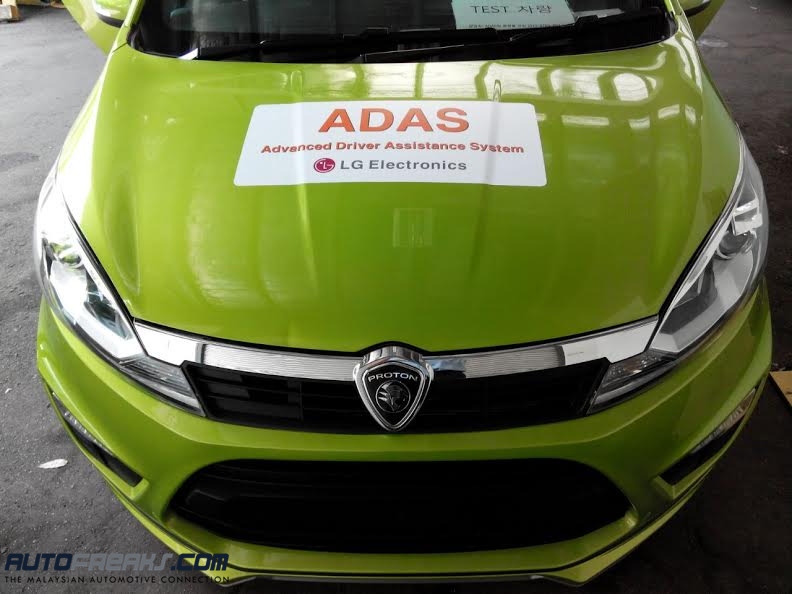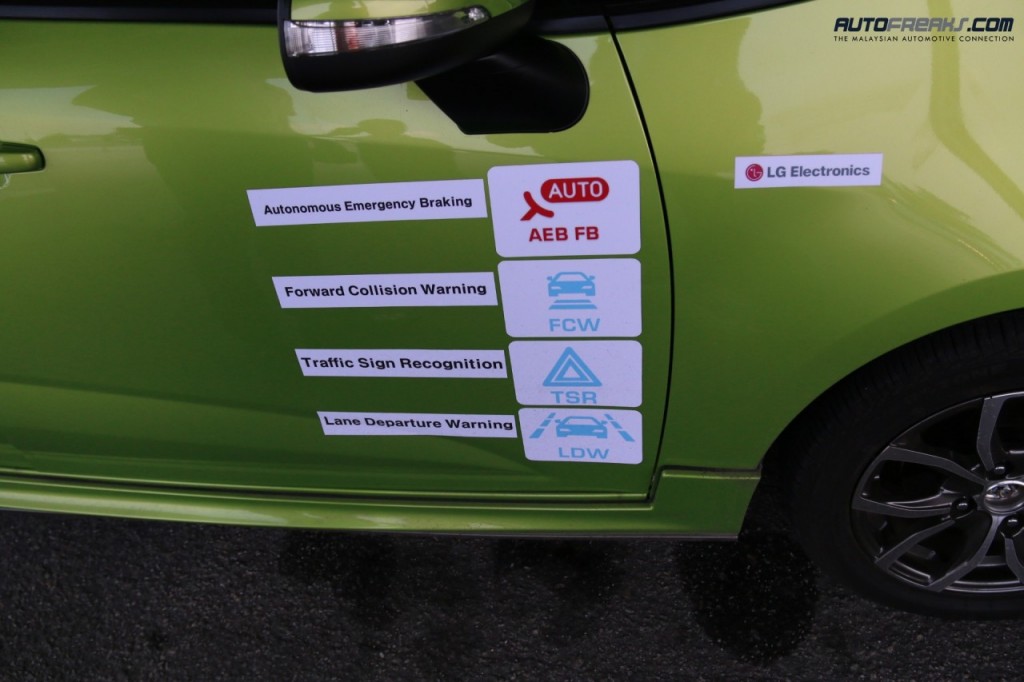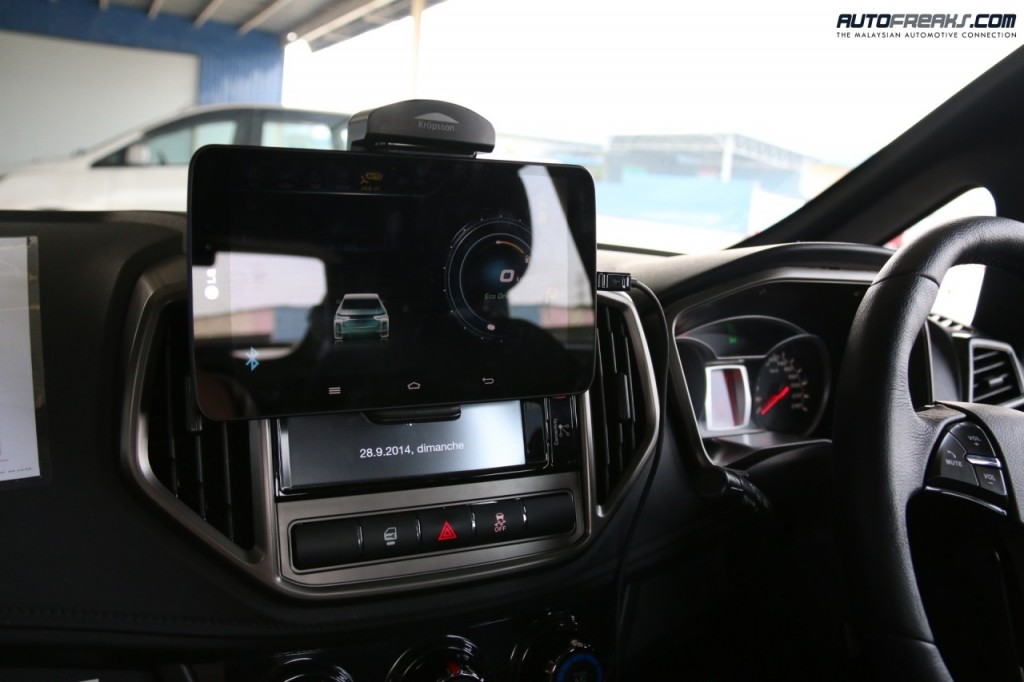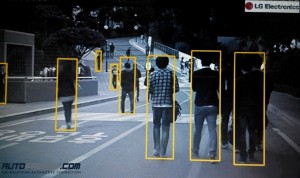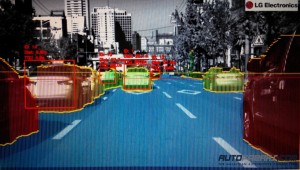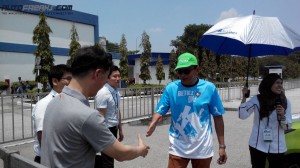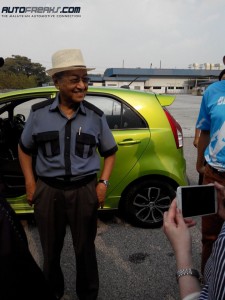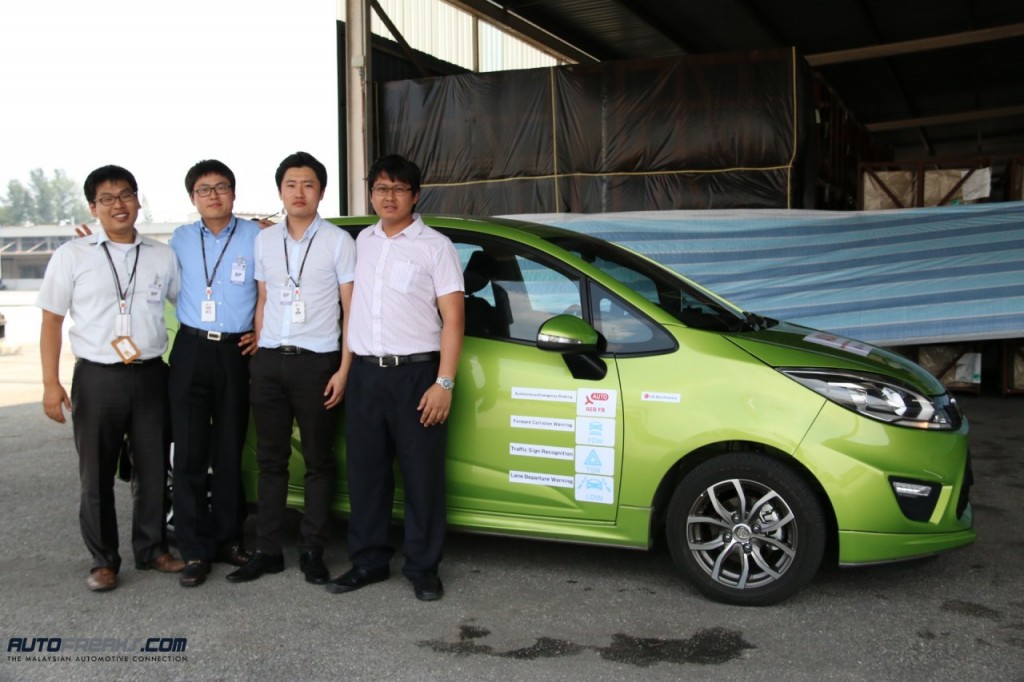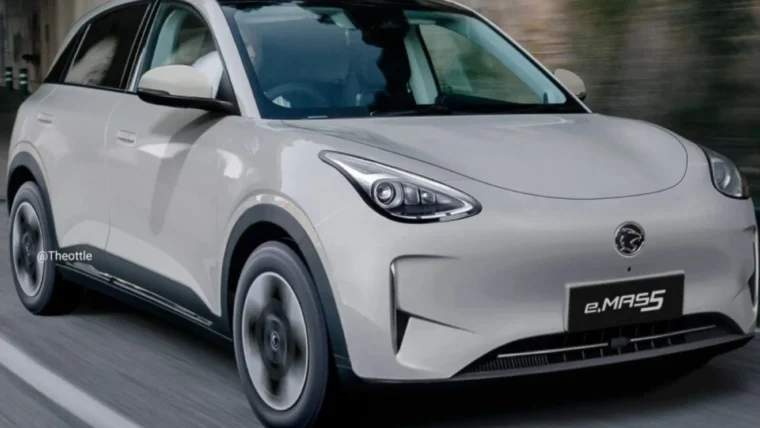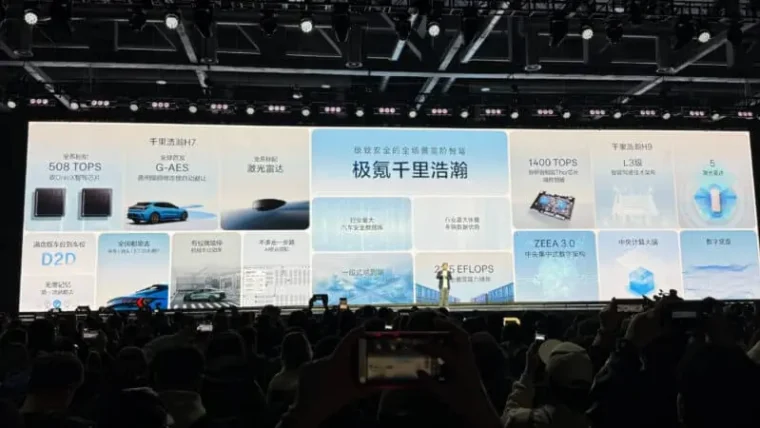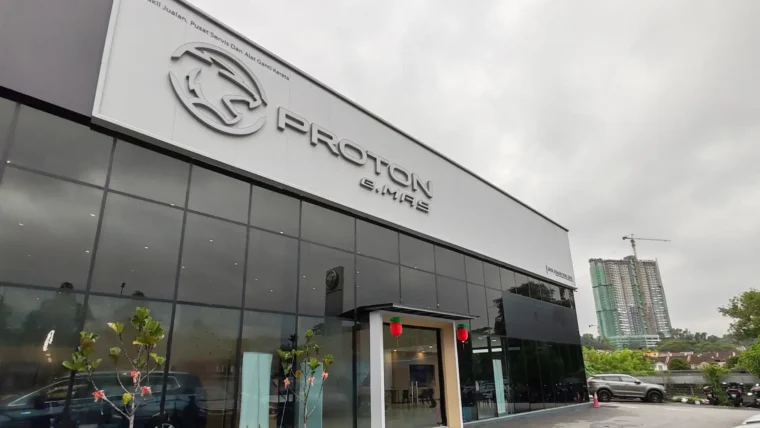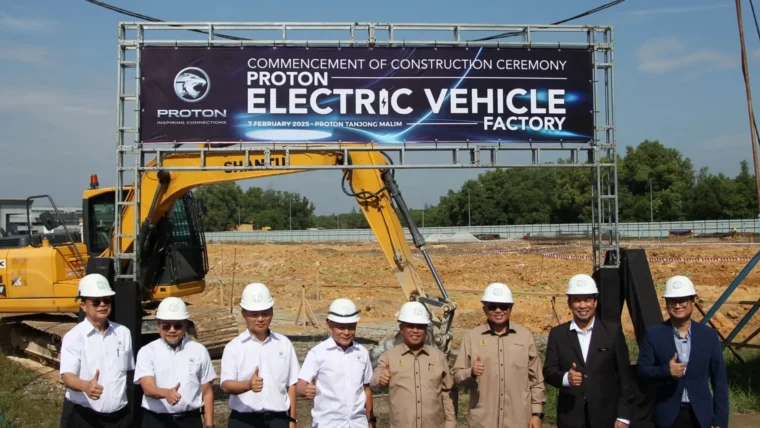During the “Alami Proton” event last weekend, I stumbled upon (by accident) a group of engineers from LG electronics with a green Proton Iriz. What was supposedly a short trip to meet up with the nice guys from R3 turned into an amazing discovery about an upcoming technology for Proton cars. Trust me, this is one discovery that made me very excited that you wouldn’t want to miss!
The name “LG” isn’t new to Proton. This Korean firm has collaborated with Proton on a number of projects; from designing models such as the Savvy, Saga and Exora to supplying various electronics for Proton cars. The latest Iriz Active concept was made possible courtesy of the talents from LG Electronics as well. Suffice to say, they are currently one of Proton’s most crucial partner to survive in the cutthroat automotive industry. Right now, the boffins from South Korea are here in Malaysia to test a range of new active safety features for Proton, such as the Advanced Driver Assistance System (ADAS).
The green Iriz over here is not your ordinary Iriz; instead it is a prototype equipped with ADAS. That comprises of Autonomous Emergency Braking (AEB), Forward Collision Warning (FCW), Traffic Sign Recognition (TSR) and Lane Departure Warning (LDW). I won’t go so much into details as firstly, the names are pretty much self-explanatory and secondly, most of the technology are still work in progress. But combining all of them and you will get an advanced active safety system from Proton that could set the bar higher when it comes to safety features in Malaysian cars.
The eager beavers from LG were kind enough to demonstrate the ADAS in their prototype, with me riding shotgun with one of the engineers on the wheel. As you may guess, the AEB works by performing the emergency braking without requiring the driver to engage the brakes.
In that demo, the green Iriz with AEB enabled will drive at 60 km/h towards a mock obstacle and the car’s electronics will trigger signals to stop the car from hitting that obstacle. Long story short, the Iriz passed the test with flying colours, twice. I have seen it with my own eyes that the driver did not press any brakes, and most importantly, the car managed to halt just centimeters away from that obstacle.
All that happened in split seconds when the sensors from FCW detected an obstacle in front, prompting the AEB into action by putting full force on brakes to prevent collision. TSR works similarly with FCW where it sweeps the road for obstacles that could pose as a threat to the driver and the AEB will kick-in during emergencies. LDW meanwhile works similarly with Mercedes-Benz’s Lane Keeping Assist function, warning the drivers when the car shifts off-lane. All these requires the ADAS stereo camera, another propriety technology from LG Electronics.
As impressive as I was, I gave feedback to the boffins of LG that such technologies will be much welcomed to Malaysians, knowingly Malaysian drivers are pretty much “reckless” while on the road. Should that becomes a reality, I’m confident that the traffic accident death rates in Malaysia will fall drastically.
That prototype has so far has been revealed to Proton’s chairman, Tun Dr. Mahathir and CEO, Datuk Abdul Harith Abdullah and the response was positive. However, more test needs to be done by the engineers and the prototype is set to be tested on the public roads soon. Perhaps in the near future, that mock obstacle will be replaced by a real car or truck.
As you may know it, such advanced active safety features are only reserved for premium European marques, and this is something LG Electronics will work on by creating these active safety features with affordability on mind. With LG’s quest for affordable active safety features and Proton’s aim for creating world class cars with modern safety features, it is a win-win situation for both companies.
However, there’s no confirmation if the Iriz or any Proton models will get such active safety features in the near future, something which could boost its chances to score 5-star rating in the renowned but stringent Euro NCAP. All will depend on the costs of such a system, as one wrong move on the pricing, it can make or break this system in a price sensitive country, such as Malaysia.
Ideally, I would wish Proton to offer high quality affordable cars with top-notch safety features. Imagining a future Proton car, once associated with safety standards of a green beverage can, to have safety features of a Volvo was ludicrous and unthinkable when I was in school. Thanks to the special efforts from our Korean friends, the unthinkable may soon become a reality in the near future.
Special Thanks to the Project Engineers and Project Manager from LG Electronics for that splendid opportunity!
Other posts by AF Newsdesk


